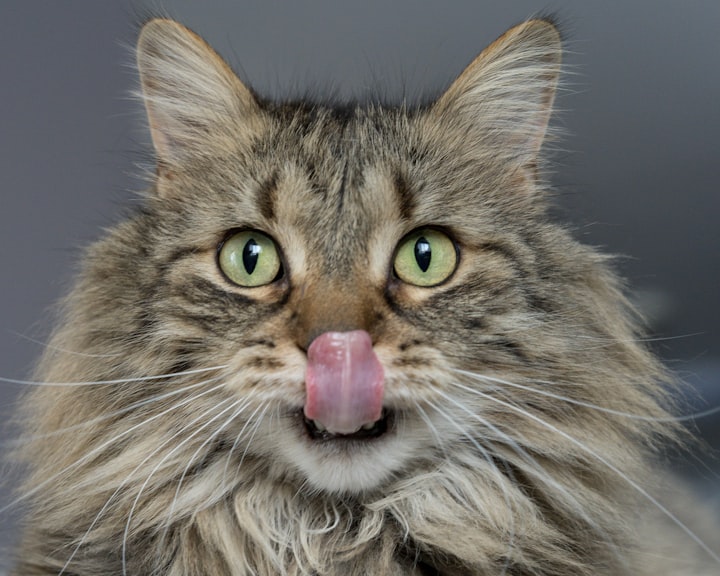
Cats are one of the most beloved pets in the world. They are cute and amusing and skilled in doing tricks. However, one of the ultimate things to recall when caring for cats is their diet.
Cats require a specific diet to stay healthy; know the nutrients they need and how to provide them best. Here are seven tips to improve your cat’s diet and help them stay healthy.
1. Feed Your Cat High-Quality Dry Food
When selecting food for your cat, dry food can be a good source of nutrition for cats. It is important to keep in mind the food's nutritional balance and ingredient quality.
High-quality cat food is made with easily digestible ingredients and free of artificial colors, flavors, and preservatives. Look for grain-free dry foods, high in protein and low in carbohydrates.
It should also include essential vitamins and minerals. Check the label to ensure that the ingredients are of good quality and that the food is appropriate for your cat's age and activity level.
Avoid table scraps; they are a poor source of nutrients for cats. Even if your cat seems to like them, the nourishment they often give is inappropriate and can result in obesity.
2. Provide Variety to Your Cat's Diet
Cats become bored with the same food daily. Cats need a balanced diet and can benefit from various foods. Offer your cat a variety of both wet and dry food, as well as treats.
They will ensure your cat gets a balanced diet and make mealtimes more enjoyable. Choose foods formulated for cats that contain essential nutrients like protein, carbohydrates, fat, vitamins, and minerals.
3. Monitor Your Cat’s Weight
It is vital to keep an eye on your cat's weight. Obesity can be detrimental to your cat, raising its risk of developing cancer, diabetes, heart disease, high blood pressure, joint problems, and other illnesses. Some cats may need more food if they are very active, while others may need to eat less if they are prone to gaining weight.
Consult your vet about the optimal weight range for your cat, and monitor them to ensure their diet provides adequate nutrients. Reduce your cat's portion size or switch to lower-calorie food if it is gaining too much weight. If it is losing too much weight, increase its portion size or switch to a higher-calorie food.
4. Minimize Treats
Though treats are an excellent way to impress your cat and show them that you care, limiting treats and ensuring that they are not replacing meals is crucial. Treats should only make up a small portion of your cat's diet and should be given sparingly. Choose treats that are healthy and formulated for cats.
5. Add Supplements
Supplements are a terrific technique to ensure your cat receives the nutrition it needs. Cats benefit from supplements such as; omega-3 fatty acids, taurine, and vitamin E. consult your vet for advice on the supreme vitamins for your cat and how to administer them.
Some of the supplements they take can be included in their diet, but others may need to be administered separately.
6. Give Fresh Food and Water
Fresh food is essential for cats because it provides the most nutrient-dense and balanced diet. Choose fresh, high-quality proteins such as chicken, beef, fish, and eggs, as well as carbohydrates such as rice, oatmeal, and potatoes.
Fats, including olive oil, canola oil, and flaxseed oil, should also be included in your cat’s diet. These foods should be cooked or steamed rather than served raw.
Cats need access to fresh water at all times. Make sure to provide a clean bowl of water and change it regularly. Some cats may prefer running water, so you can consider getting a water fountain or other water source to encourage your cat to drink.
7. Monitor Your Cat’s Eating Habits and Water Intake
Please pay attention to your cat's eating habits to ensure that they eat enough and that their diet is balanced. Talk to your veterinarian if you notice any changes in their eating habits. They can advise how to adjust your cat's diet and ensure that they get enough nutrients.
Cats need fresh water daily to stay healthy and hydrated. So observe your cat’s water intake, and ensure it is drinking enough. You can also keep your cat hydrated by adding a small amount of wet food to its diet.
Conclusion
Cats should be fed a balanced diet to stay healthy and contented. Following these seven guidelines can help you provide your cat with the nutrition they want and guarantee that its diet meets its necessities.
Ensure you consult a specialized veterinarian if you have any inquiries about your cat's nutrition or if you notice any changes in its eating behaviors. Your cat can stay fit and blissful for years with the appropriate diet.






Comments
Dave Coty is not accepting comments at the moment
Want to show your support? Send them a one-off tip.